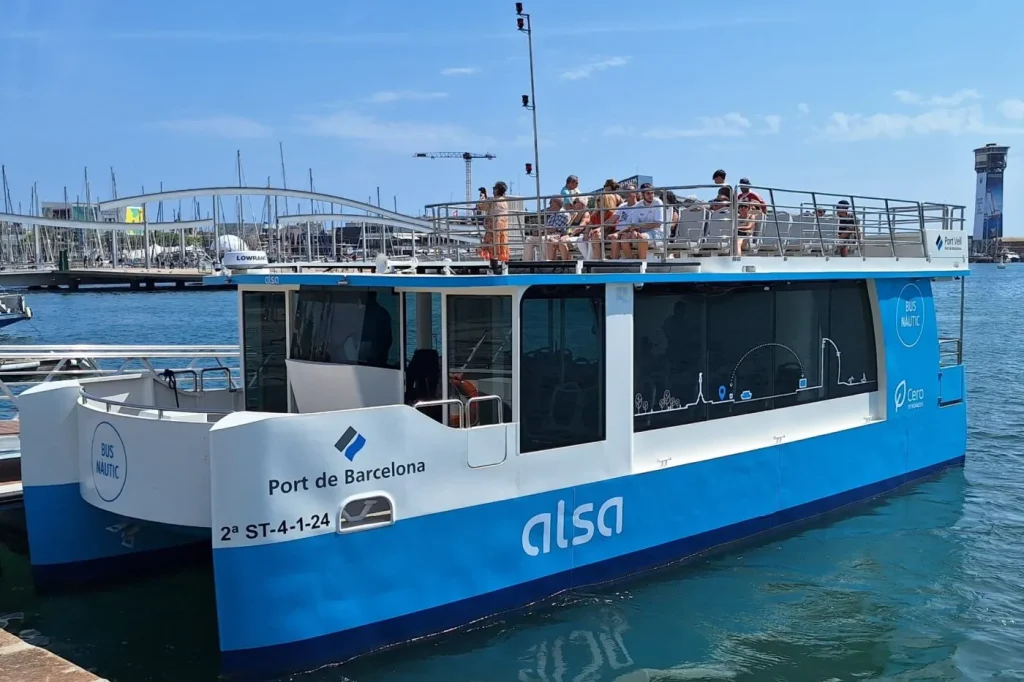The Port of Barcelona has introduced a new all-electric commuter ferry equipped with German-made electric motors from Molabo and a propulsion system designed by Azimut Marine, marking a step forward in the city’s efforts to reduce emissions from maritime transport.
The new vessel, Ecocat Tres, is powered by two Molabo ARIES i50 inboard electric motors, each delivering 50 kW, and draws energy from 36 onboard batteries with a combined capacity of 216 kWh. According to Molabo, the aluminium catamaran can operate for up to 21 hours on a single charge at its cruising speed of 5 knots. Solar panels integrated into the system supply as much as 40% of the vessel’s energy consumption.
See also: Amsterdam to Ban Combustion-Powered Pleasure Boats in Central Canals from April 2025
“Integrating our ARIES i50 motors into Barcelona’s nautical bus fleet underscores our commitment to making maritime transport quieter, cleaner, and more reliable,” said Adrian Patzak, Chief Operating Officer at Molabo GmbH. “Our low-voltage propulsion solutions provide plenty of power for this large, heavy passenger vessel and are also easy and safe to maintain and repair.”
The 15-metre ferry can carry up to 84 passengers and is part of the Bus Nàutic service that links the Drassanes and Llevant wharves. The trip takes approximately ten minutes and the boat runs at intervals of 15 to 30 minutes for a minimum of 12 hours daily. According to Molabo, more than 125,000 emission-free trips were completed within the first three months of operation.
See also: Corvus Energy to Supply Record 25 MWh Battery for First All-Electric Offshore Vessel
Port of Barcelona president José Antonio Carbonell described the new ferry as a milestone in the port’s environmental strategy. “The arrival of the new electric water taxi marks a meaningful step forward in our commitment to sustainability,” Carbonell said. “This 100% electric, zero-emission passenger ferry is helping us reshape mobility in the port and accelerate the decarbonization of our operations.”
